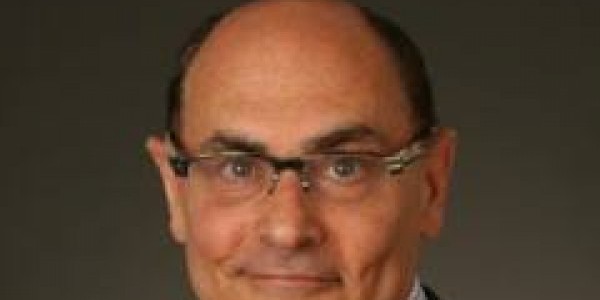Elijah Voices on Nostra Aetate - Rabbi Richard Marker
Some thoughts on various celebrations of the 50th Anniversary of Nostra Aetate:
31/01/2016 | Na stronie od 31/01/2016

Rabbi Richard Marker
I had the privilege of being an invited participant in three official but quite different commemorations of the 50th Anniversary of Nostra Aetate. Certainly any member of the Elijah Board of World Religious Leaders needs no explanation of the profound and transformative impact this had on the relationship of Roman Catholicism with other religions. Nevertheless, the differing emphases of each of these three events underscores the scope of this impact, and were suggestive of implications for the future.
The USA
The first “official” event was held at Catholic University in Washington, DC. There have been many local commemorations in the USA, but the Vatican sponsorship of this one gave it a sense of official overlay.
The organization was intriguing: the conference was divided into three separate components and, therefore, disappointingly, had too few attendees who attended the entirety. One day was Catholic-Muslim relations, one day was Catholic-Jewish, and one day was pretty much everything else. For those of us who participated from beginning to end, it was clear how differently our perception of what mattered most about that extraordinary document, and moment in world religious history. While those of us in the Jewish world continue to underscore the importance of telling our own community and reminding the Roman Catholic community that telling this story is not yet finished. Several others, though, viewed that these 50 years should be viewed, as a paradigm of how interfaith understanding should be informed going forward.
Rome
The invitation came from the Vatican directly, though most of the venue was the Gregorian University. This visibly and pointedly international interfaith celebration was a touching affirmation and reunion for many of us with a long history of international interreligious matters. To my mind, this was one of two highlights of this particular commemoration.
The structure was decidedly academic –with formal written and read papers, many of which required simultaneous translation. Many of us would welcome an opportunity to read them. Disappointingly, interaction was largely restricted to the coffee breaks.
The other highlight was the only part of this Commemoration that took place away from the Gregorian. Our entire group had an invitation to sit on the raised section of St Peters Square, to the immediate right of the Pope, during his weekly Wednesday morning public audience. This Pope’s rock star popularity was very much in evidence – especially with a teen age group periodically interrupting with rhythmic cheers of “FRAN-CES-CO”. Sections from the Nostra Aetate were read in the variety of languages of those in attendance. If anyone had any question about the commitment of this Pope to the importance of projecting the continuing and abiding importance of Vatican II and its transforming document, the semiotics of this moment should answer as loudly as the cheers that filled the Square despite the cold and drizzle.
The UN
If the first event focused on particularity, and the second on universality, the third showed the fragility of even profound historic events such as Nostra Aetate. This was an event co-sponsored by IJCIC, the global Jewish community’s official consortium for international interreligious relations, and the Vatican’s UN Delegate. The symbolism was quite important: The UN is known for its skepticism that religions can play a consistently constructive role in building understanding and amity around the world. [This is distinct from the UN’s appreciation for the educational and healthcare role that religious institutions play for millions around the world, especially in developing regions.]
Among the presentations was recognition that the theological challenges of Nostra Aetate continue, and are an active agendum among contemporary Catholic theologians. Some of the speakers clearly felt that it was time for Catholic theology to account for this breach in continuity. I have heard this previously – but given the next observation, it resonated in a new way.
This setting was international, and some representatives of some of the UN member States were in attendance, but the majority of attendees were local. And their questions, from Catholic, Jewish, and other attendees were filled with a level of doubt that anything has really changed. As hard as this was to hear by those of us who have been deeply involved at a very high adjudicatory level, it was clear that centuries of distrust have not fully eroded in 50 years.
Was it because those of us on the leadership level have failed in our duty, or are we deaf to what those closer to the ground are saying, or perhaps that, after 2000 years, even 50 years is too short to prove that genuine transformation can come to any world religion?
It reminds us that our challenges and tasks continue!
*Rabbi Richard Marker, currently Vice Chair of the International Jewish Committee on Interreligious Consultations, has been involved in interfaith matters his entire career. His academic degrees are in comparative religion; he has worked as a Chaplain in an interfaith chaplaincy at one of the Ivy League Universities in the US; he has chaired numerous interfaith dialogue groups; he has taught Jewish theology at a Jesuit University and elsewhere; he has lectured at various schools of theology and universities both in Europe and the United States; and has been involved with the Board of World Religious Leaders since its inception. Currently he teaches Philanthropy at New York University.
International Jewish Committee for Interreligious Consultations